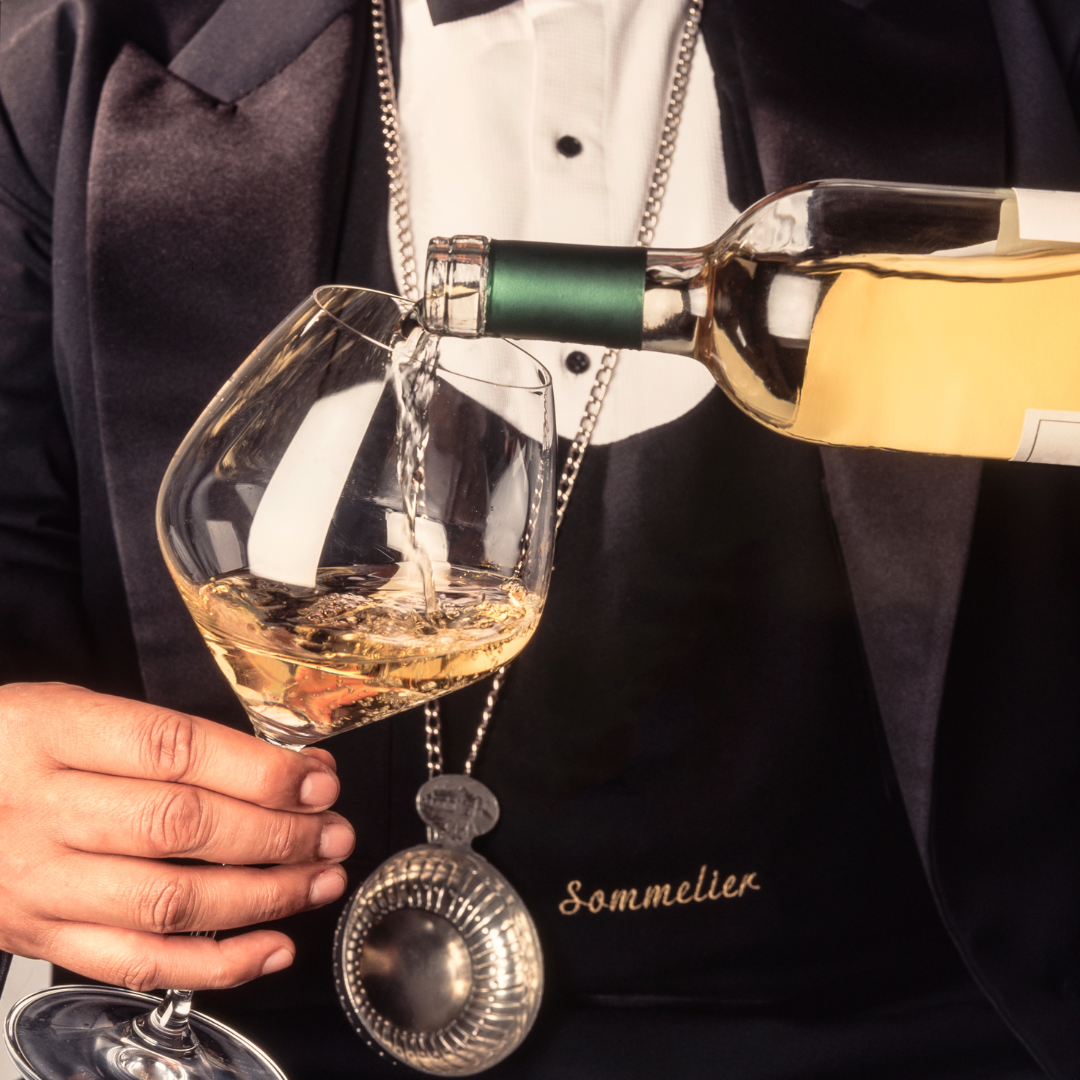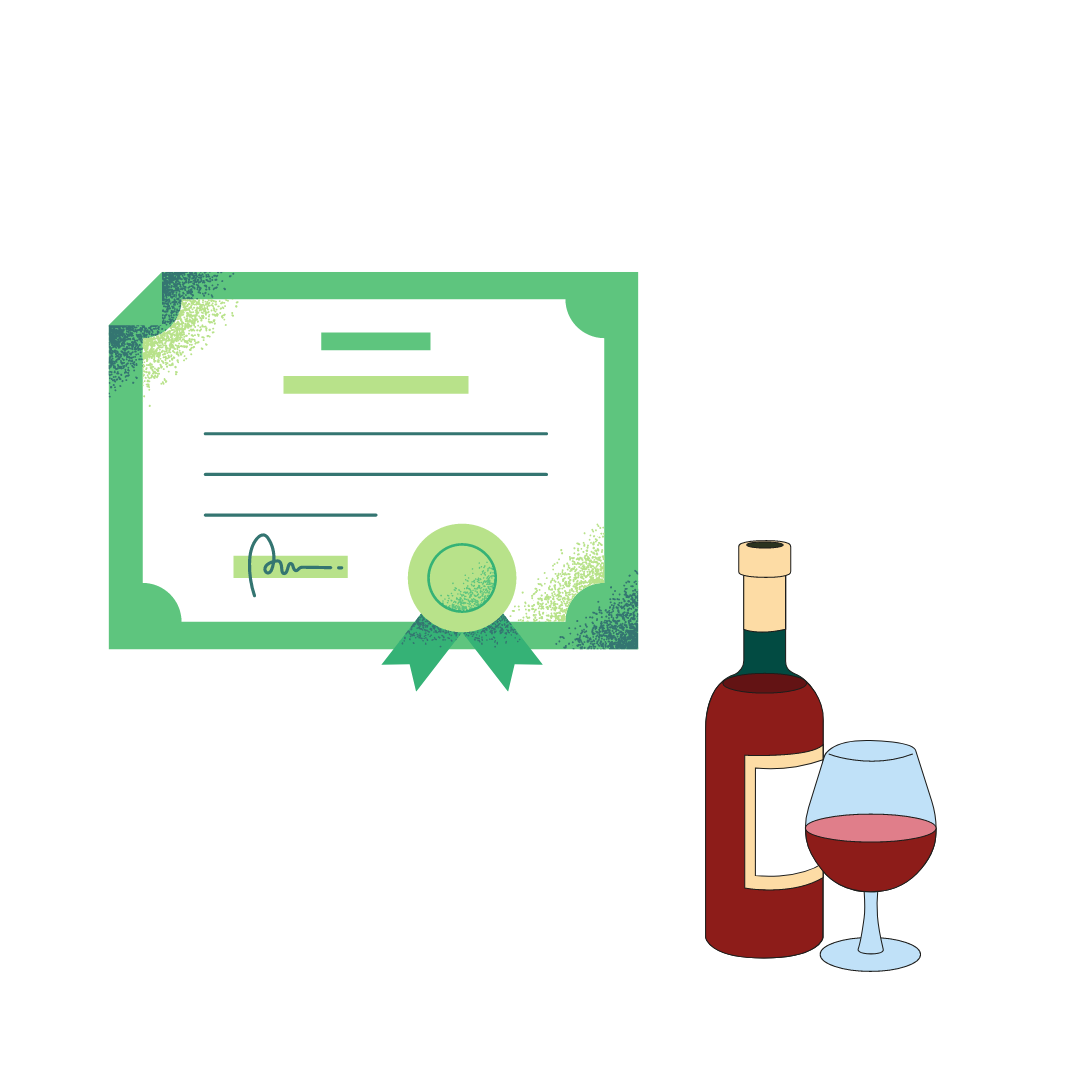Nov 14th 2022 - Monica Cunanan
What Is a Sommelier? Learn All About Their History, How to Become One, and More!
Ever wondered what is a sommelier? Pronounced suh-mel-yay. In this article, we are going to break it all down, explain the different aspects of this wine trade, and provide some tips for how you can use your skills to their fullest potential.
What is a Sommelier?

This prestigious term refers to wine specialists who have gone through years of wine education and training, with a tremendous amount of wine experience. They are not mere wine waiters, although historically, the term sommelier meant "wine steward.
To become a sommelier, one must go through It involves knowledge of all aspects of wines, how they're served, their production, and their history, as well as the aspects of wine service. They are often known for their expert skills in wine pairing and often work with head chefs to create a wine list for food pairing. A sommelier is a highly educated and qualified wine expert who usually serves at fine-dining restaurants.
With the growing interest in drinking wines, there has been an increase in the number of individuals who want to learn about them. If you want to be an expert, you might end up becoming a sommelier, or for some people, the prestigious role of master sommelier.
Learn more about the Different Types of Wines You Need to Try!
What does a Sommelier do?
Professional sommeliers need to have formal training to be wine professionals. They have responsibilities that only they are capable of. Becoming a sommelier opens up all sorts of vocational opportunities, from running a local wine store to owning and operating a vineyard.

Sommeliers' responsibilities include:
- Sampling and evaluating wines from all over the world
- Selecting wines to match a customer's taste preferences and price range
- Inventory management and storage
- Working with the head chef on recommended foods for each course
- Training the waiters/waitresses at restaurants on basic wine knowledge
Misconceptions about Sommeliers

- Blind Tasting is not everything! Media representations of sommeliers seem truly remarkable. With a taste, they can quickly recite the name of the wine, the type of grapes used, the region where they were grown, and ultimately the winery and vintage year. Although this skill set is required for passing the Master Sommelier examination, not every employers or customer require them to be able to do so on a regular basis.
- "They are wine snobs". Wine experts don't need to be intimidating or boastful; rather, their job is to get into the mind of the consumer so that they can provide them with the best wine possible for the occasion. A sommelier will recommend the best wine for any dish. Ultimately, the job of the sommelier is to help the customer drink and appreciate wine.
Steps on How to Become a Sommelier
It's never impossible to get started on expanding your knowledge of wine. Here are ways you can start your journey to become a sommelier.
- If your resources are limited and buying expensive wines can be difficult, maybe get involved in the wine industry by becoming a writer with this niche, or working at a winery.
- Seek out a job at a winery or a restaurant serving fine wines. If you let management or the resident sommelier at your restaurant or bar knows of your interest, they might be able to offer some valuable advice.
- Keep up to date by reading books and publications about wine Keep up with the latest developments and innovations.
- Try to attend wine-tasting events and absorb as much knowledge as you can. Listen carefully to what the presenters and the other attendees say about the wines.
- Travel! Go wine tasting! Get an insider’s view of the local culture and wine.
- Get certified in the wine industry by taking courses at an accredited wine school. You need to understand that these preparations, though expensive and time-intensive, will ultimately lead you to a career as a sommelier.
If you want to know what it takes to be a sommelier or to earn a good living in the wine business, ask yourself if you have the desire and drive to pursue these goals. A career in winemaking involves hard work and dedication, but it also demands passion for wine.
Education and Exams To Take

If you told someone who isn't familiar with the world of wines that becoming a Master Sommelier requires more effort than taking the Bar or CPA exams, they probably wouldn't be convinced. However, becoming a master sommelier takes years of training and experience even to pass the exam. You need to pass all three parts of the test: taste, practical service, and theory.
The Master Sommeliers exam is held only once a year, but the location can be almost anywhere on the planet and changes from year to year. If you pass one section of the test and then get a failing grade for another, you don't have to take the second section again right away, but you must wait a full calendar year before taking it again.
What is the Master Sommelier Exam?
History
The exam as we now recognize it began in 1977 when the Court of Master Sommeliers was established. The organization currently has close to 240 Master Sommeliers and usually adds only a few new ones each year. Approximately 8% or 7 out of 60 Master Sommelier candidates pass this rigorous exam
The origins of the Master Sommelier exam date back to 1363 when the top 12 prestigious London winemakers formed an organization called the Worshipful Company of Vintners to regulate and normalize the sale and importation of wines. In 1953, the same company created an examination for 21 people to ensure they had enough knowledge in the wine and spirit industry. It was first given as an official test for sommeliers in 1969 and then evolved into the Master of Sommelier Exam.
Levels To Go Through
If you're thinking about becoming a sommelier or pursuing the master sommelier exam, here are some things you need to consider.

- Beginner level/Basic level: If you are at the entry level, you may want to work at a winery or vineyard. Traveling also helps as it will involve visiting domestic winemakers and vineyards in other parts of the world. As you gain experience with wines, you become confident in your ability to identify them correctly.
- Certified Level: To reach this more advanced level, it could take months or years of experience. You will be responsible for more things at work in the wine business. You'll be able to share your knowledge of wines with your colleagues and friends and confidently plan and host tastings.
- Industry-experienced professional: You've probably been working in the industry for some time now and know the bigger context. You keep working on your wine knowledge, both formally and informally. You may qualify for a job as a Sommelier. You can expect a higher salary.
- Mastery - The highest achievable level. You've spent thousands upon thousands of hours studying wines and further developing your career. You're considered an expert in the field.
Modern Sommelier
Modern versions of the sommeliers are not necessarily limited to the floor at a fine dining establishment interacting with guests and serving wine. Even though these establishments are considered to be in the hospitality industry, it would depend on them what they may expect from a sommelier.
- Some perform additional duties, including developing wine lists for multiple locations, training staff members, and collaborating with chefs to create new menu items that complement the wines. Most important, first and foremost, a sommelier must know wine well – often also types of beer and spirits – so they understand how each drink works in harmony with foods.

Anyone who works directly with wine at a fine dining establishment can call himself or herself a sommelier, but a true sommelier must have some level of formal education and training. You don't necessarily need to be passionate about wine to become a sommelier, but you'll definitely need a lot of drive to succeed. It's not easy to become a certified sommelier. You need to be willing to put in a lot of hard effort and spend a lot of time practicing. It may be difficult for someone who has no experience to learn quickly. However, if they study hard enough, they could eventually achieve certification at an advanced stage.
Getting creative with your Modern Cocktails?
Ready to showcase your newfound appreciation for Red Wine? Impress your friends and family when serving your delicious cocktails. Culinary Depot is your one-stop shop for essentials for your home bar or business. Contact us now or visit our online store for your bartending essentials!

